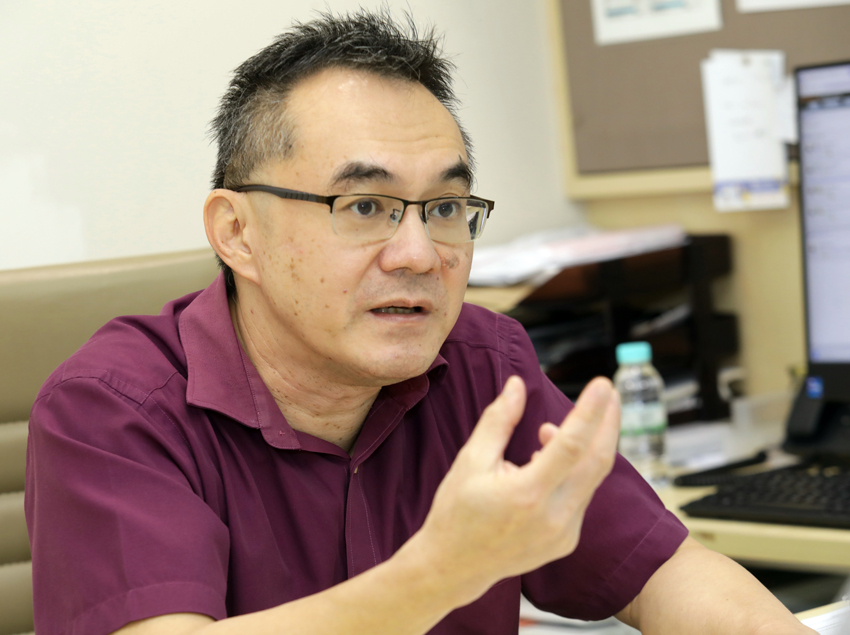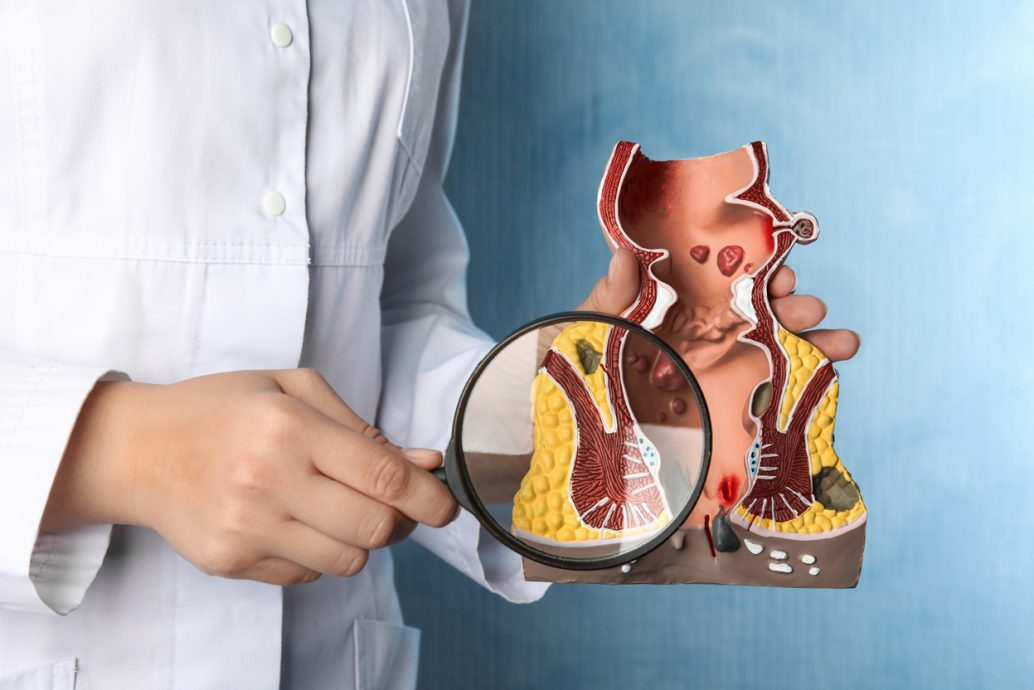What should you do if you get hemorrhoids? Do you always need surgery? How can hemorrhoids be prevented?
Hemorrhoids are a relatively common condition in daily life, and actually, hemorrhoids are not an incurable disease as long as they are detected and treated early. It's important to first go to the hospital to confirm the symptoms and then let the doctor provide targeted treatment.
Dr Tan Khoon Eu, a general surgery consultant at Bukit Tinggi Medical Centre Klang, points out that getting hemorrhoids is actually very common, and people of all ages may encounter it. In the early stages, hemorrhoids often present as rectal bleeding. Although for some patients, symptoms may disappear without treatment, there are many causes of rectal bleeding, ranging from benign hemorrhoids to malignant colorectal cancer. Therefore, a correct diagnosis must be made first to provide appropriate treatment.

"The common symptom of hemorrhoids is blood in the stool, but blood in the stool is not necessarily hemorrhoids. If there is bleeding during bowel movements, you should first see a doctor to confirm the cause of the bleeding, as it could be colorectal cancer or other digestive ulcers and bleeding diseases."
Causes of Hemorrhoids
Dr Tan Khoon Eu points out that, from the perspective of the anatomy of the anus, after food is digested and absorbed through the gastrointestinal tract, it accumulates in the rectum to form stool, which is expelled through the anus during defecation. Three muscles are mainly responsible for controlling defecation: the puborectalis muscle, the internal anal sphincter, and the external anal sphincter, which together control the process. Hemorrhoids refer to the swelling of veins in the lower part of the rectum and anus.
He explains that there is no definitive cause for the formation of hemorrhoids, but long-term constipation, prolonged standing or squatting, and pregnancy (pressure from uterine expansion) are suspected to increase anal pressure, causing the veins near the internal and external anal sphincters to have obstructed blood flow and abnormally expand, resulting in hemorrhoids.
Who is Most Likely to Get Hemorrhoids?
Dr Tan Khoon Eu notes that hemorrhoids commonly occur in people who frequently experience constipation or diarrhea (increased local pressure on the anus), obese individuals (increased abdominal pressure), people in occupations requiring prolonged sitting or standing (making it difficult for blood to return from the veins in the rectum and anus), and pregnant women (increased abdominal pressure affects venous return in the anorectal area).
In addition, he points out that insufficient intake of fiber can lead to constipation, which in turn increases abdominal pressure, also contributing to the formation of hemorrhoids. Elderly people are also more prone to hemorrhoids due to weakened connective tissues and reduced mobility, affecting venous return in the anorectal area.
Differences Between Internal and External Hemorrhoids
Dr Tan Khoon Eu points out that, clinically, hemorrhoids are divided into internal and external types, but the symptoms and treatment methods differ.
“There is a clear dividing line between the anus and the rectum called the dentate line, which distinguishes internal from external hemorrhoids. Internal hemorrhoids occur above the dentate line and are due to an expansion of the venous plexus. They typically do not cause pain because there are no obvious pain receptors above the dentate line, so internal hemorrhoids generally don’t hurt.”
“External hemorrhoids occur below the dentate line and are often accompanied by significant pain. External hemorrhoids, due to the formation of blood clots, form lumps around the anus and can cause sharp pain. This type of hemorrhoid is known as a thrombosed hemorrhoid.”
He explains that most cases of hemorrhoids causing discomfort, such as difficulty sitting or standing, are due to external hemorrhoids, thrombosed hemorrhoids, or a combination of internal and external hemorrhoids. Simple internal hemorrhoids often only result in occasional rectal bleeding and are commonly overlooked.

Symptoms of Hemorrhoids
Dr Tan Khoon Eu points out that the main symptoms of hemorrhoids include rectal bleeding, lumps around the anus, anal pain, and itching around the anus. However, he notes that many hemorrhoid patients have no symptoms and may not even know they have hemorrhoids.
"Some symptoms, such as itching, bleeding, or pain, may be caused by other diseases and not necessarily hemorrhoids. For example, bleeding could be due to colorectal cancer, and pain could be due to an anal fissure."
Four Grades of Hemorrhoids
Dr Tan Khoon Eu explains that hemorrhoids are usually classified into four grades. Grade 1 involves swelling of the venous plexus and epithelium without prolapse. Grade 2 hemorrhoids begin to prolapse but can return to their original position automatically. Grade 3 hemorrhoids prolapse and can be manually pushed back above the dentate line. Grade 4 hemorrhoids prolapse outside the anus and cannot be pushed back, possibly accompanied by chronic inflammation and ulcers.
How to Prevent Hemorrhoids
Dr Tan Khoon Eu suggests that hemorrhoid patients can improve their symptoms through dietary adjustments and lifestyle changes, such as increasing fiber intake. The fiber in fruits and vegetables helps promote gastrointestinal motility and can prevent constipation and reduce the chance of hemorrhoidal bleeding. Additionally, consuming enough water can help soften stools. He also advises avoiding fried foods, as they may worsen constipation.
"Avoid straining during bowel movements, maintain good anal hygiene after defecation, and try not to sit on the toilet for too long. Regular exercise can also promote smooth bowel movements. For example, walking helps maintain intestinal movement and blood circulation. Many people hold in the urge to defecate due to work, but this can cause stools to remain in the intestines, making it harder to pass later. Therefore, it's important to develop the habit of regular bowel movements and not to hold it in."
Treatment for Hemorrhoid
Dr Tan Khoon Eu explains that not all hemorrhoid patients need surgery. If the hemorrhoids are mild, symptoms can be reduced through lifestyle and dietary changes, applying ointments, or taking medications that improve venous blood flow to reduce bleeding and pain. However, if symptoms persist, surgery may be considered.
He states that there are several treatment methods, including rubber band ligation, laser ablation, hemorrhoidectomy, and traditional hemorrhoid surgery.
The doctor will first assess the type of hemorrhoid and common symptoms the patient is experiencing, then determine the most suitable treatment based on the grade of the hemorrhoids.
Source: Sinchew
Find out more about Dr Tan Khoon Eu: https://bukittinggimedicalcentre.com/doctor-info/dr-tan-khoon-eu




